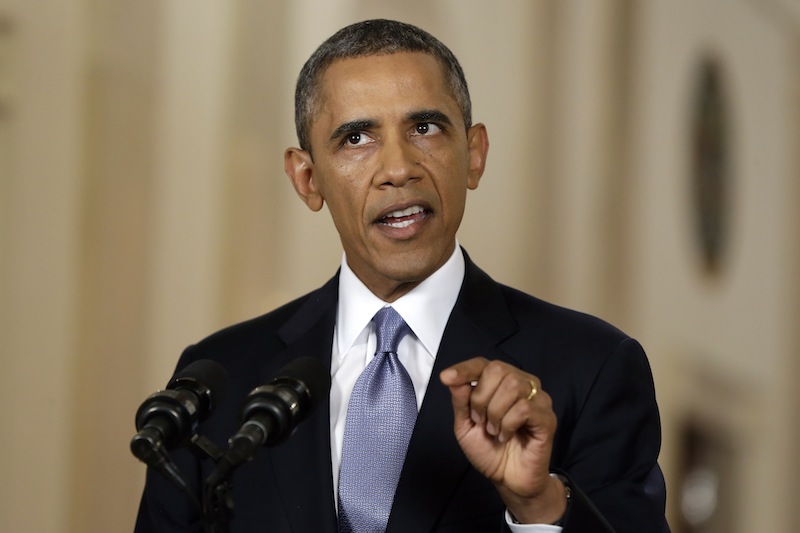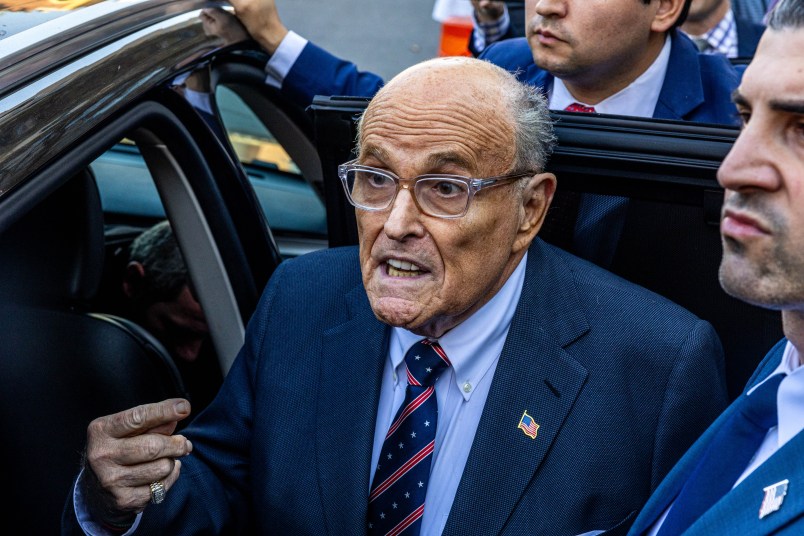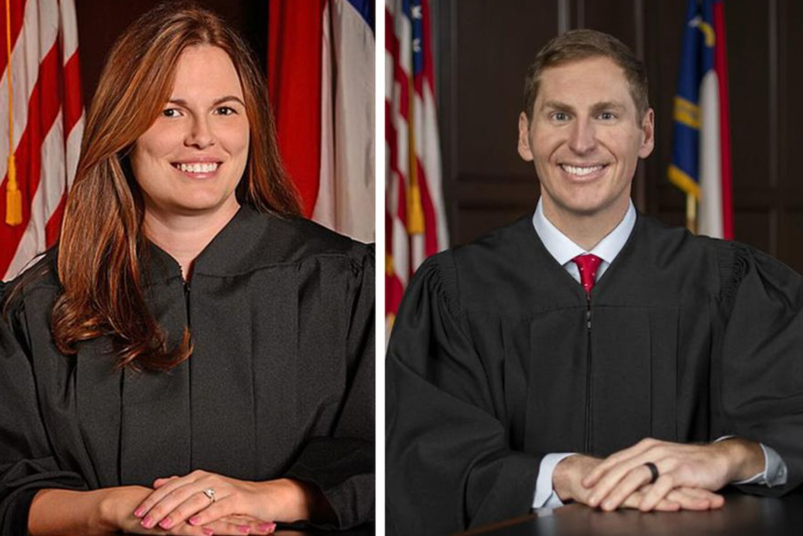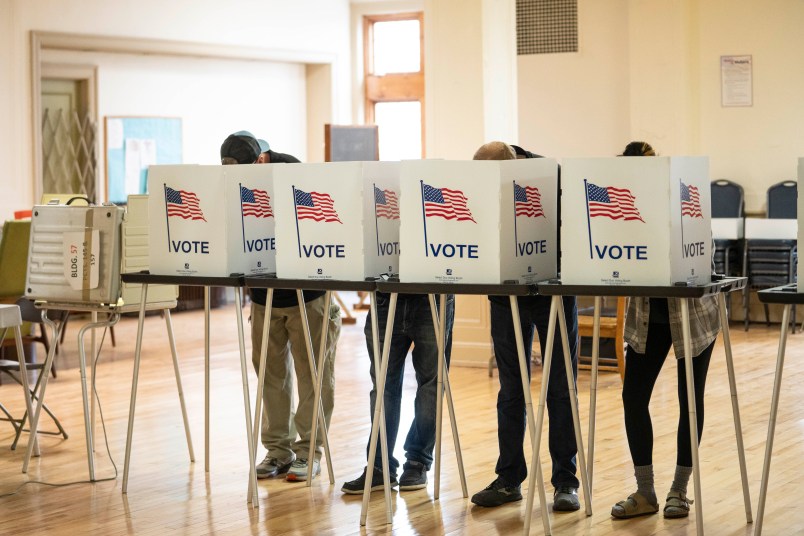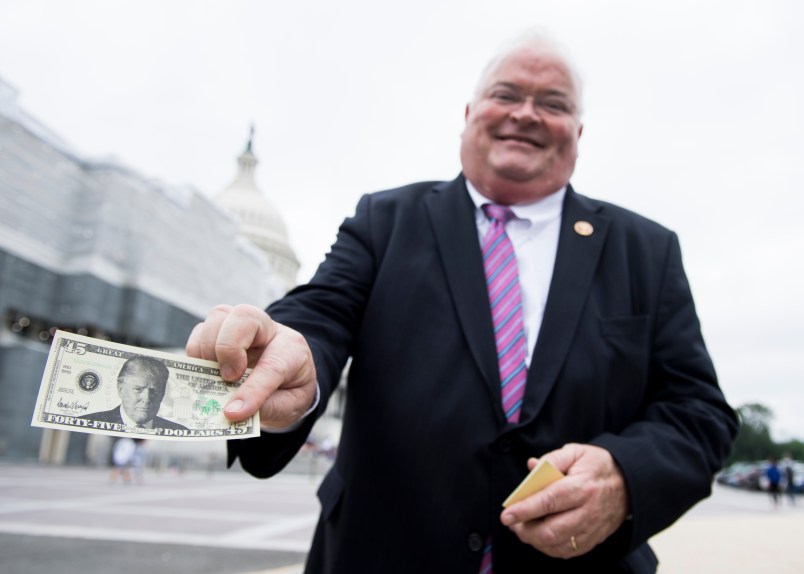WASHINGTON (AP) — President Barack Obama and Senate Republicans are squaring off at the Supreme Courtover the president’s power to temporarily fill high-level positions.
The high court is hearing arguments Monday in a politically charged dispute that also is the first in the nation’s history to explore the meaning of a provision of the Constitution known as the recess appointments clause. Under the provision, the president may make temporary appointments to positions that otherwise require confirmation by the Senate, but only when the Senate is in recess.
The court battle is an outgrowth of the increasing partisanship and political stalemate that have been hallmarks of Washington over the past 20 years, and especially since Obama took office in 2009.
Senate Republicans’ refusal to allow votes for nominees to the National Labor Relations Board and the new Consumer Financial Protection Bureau led the president to make the temporary, or recess, appointments in January 2012.
Three federal appeals courts have said Obama overstepped his authority because the Senate was not in recess when he acted. The Supreme Court case involves a dispute between a Washington state bottling company and a local Teamsters union in which the NLRB sided with the union. The U.S. Circuit Court of Appeals for the District of Columbia overturned the board’s ruling, and hundreds more NLRB rulings could be voided if the Supreme Court upholds the appeals court decision.
More broadly, if the justices ratify the lower court ruling, it would make it nearly impossible for a president to use the recess power. Under such a ruling, presidential nominees could be blocked indefinitely when the president’s party does not control the Senate.
Three federal appeals courts have upheld recess appointments in previous administrations.
Senate Republicans also are taking part in the case, in support of the company, Noel Canning.
The impasse over confirming nominees to the NLRB and the CFPB was resolved last summer. And majority Democrats have since changed Senate rules to limit the ability of the minority party to block most presidential nominees, spurred by GOP efforts to block three Obama appeals court nominees.
But while situations like the one that led to the current court case are unlikely to arise in the short term, a Republican takeover of the Senate in the midterm elections in November could prompt a new round of stalled nominations, said John Elwood, a Washington lawyer who served in the Justice Department during the Bush administration and has written extensively about recess appointments. “We may be back where we were before,” Elwood said.
The justices will be considering two broad questions and a narrower one as well.
The big issues are whether recess appointments can be made only during the once-a-year break between sessions of Congress and whether the vacancy must occur while the Senate is away in order to be filled during the same break.
Solicitor General Donald Verrilli Jr. told the court that 14 presidents have temporarily installed 600 civilians and thousands of military officers in positions that were vacant when the Senate went into recess at any point, a practice that has been well-understood by both presidents and lawmakers. A high court ruling that a recess only happens once a year would “dramatically upset that long-settled equilibrium,” Verrilli said.
The narrower issue is whether brief, pro forma sessions of the Senate, held every few days to break up a longer Senate hiatus, can prevent the president from making recess appointments. That’s what the Senate did, at Republicans insistence during the time when Obama acted.
Senate Republicans say the answer is easy. “Who determines — the Senate, or the President — whether the Senate is in session? The Constitution’s text and structure point to only one answer: the Senate,” the Republicans said in court papers.
But Verrilli said the Senate made clear in voting for the pro forma sessions that no business would be conducted and that, in essence, the Senate would be in recess. “The President took the Senate at its word. And rightly so,” he said.
Highlighting the new rules, the Senate is scheduled to vote a few hours after the Supreme Court argument on the nomination of one of those previously blocked Obama appointees, U.S. District Judge Robert Wilkins, to serve on the federal appeals court in Washington.
Copyright 2014 The Associated Press. All rights reserved. This material may not be published, broadcast, rewritten or redistributed.





